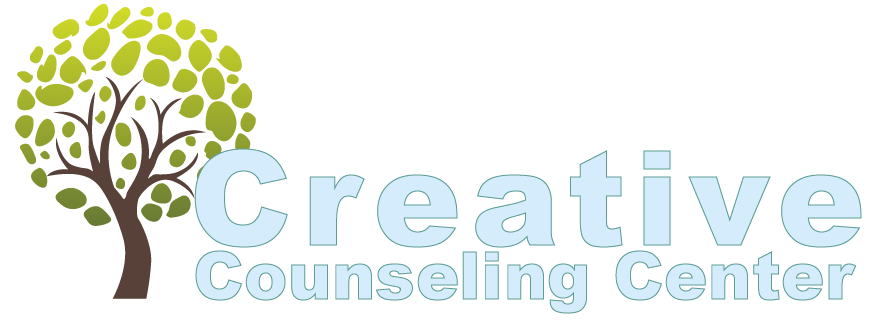ANGER MANAGEMENT | ANGER MANAGEMENT COUNSELING & TECHNIQUES
If you or someone you know can be described as “hot tempered” or “a hothead,” then you know how harmful excessive anger can be. People may feel that anger is a part of who they are, and that anger management is out of their hands. However, there are many anger management techniques that, when practiced regularly, can help tame the beast within. With the help of anger management counseling, individuals can learn to simmer down and prevent the negative repercussions that manifest alongside outbursts of rage: pushing away and emotionally damaging your loved ones; stress-related health issues; insomnia, headaches and digestive problems. Studies show that cognitive behavioral therapy, anger management classes and self-practice of the following techniques can reduce aggression.
RELAXATION
It is important to take time out of each day to breathe. Breathe deeply from your abdomen – not your chest – hold it for a few seconds, and let all of the air out. Practice these deep breaths in combination with repeating a calming phrase or word: breathe, relax, take it easy, or even a nonsense word like goosefraba , from the movie, Anger Management . Using imagery and non-strenuous exercise, such as yoga, can also be very effective techniques for settling the mind and emotions. Imagine yourself atop a mountain. You are sitting cross-legged, admiring the beautiful valley and landscape all around you. Close your eyes, feel the wind surrounding your body, the ground firm below your seat, and you are at total peace.
COMMUNICATION IMPROVEMENT
People with anger problems tend to jump to conclusions without really listening, defaulting to hostile words. When you are criticized or corrected you may want to fight back. These aggressive instincts can cause major rifts between you, your family, your friends, or your partner. Next time a discussion gets heated, listen to what is really being said. Try to relax, and choose your words carefully. Try not to take things personally, believing rather that no judgement is being passed and that each individual is entitled to his or her own opinions. There may be an underlying issue that can be resolved via discussion rather than argument. Anger management classes may further improve the communication process by offering guidance and an outside perspective. Calm, constructive communication is the key to any relationship, and will bring you closer to finding a solution to any problem you face.
ENVIRONMENTAL CHANGE
Throughout life we will find ourselves in situations we are not happy with. Traffic on the way to work, or a job we don’t enjoy. The first practice you can integrate is to avoid these frustrations altogether. Next time you see traffic in your future, attempt to find a more scenic route that leads to the same place. It may take longer, but you will avoid the confrontation that leads to road rage – and you may even enjoy it! Also, give yourself a break each day to do something you love: drawing, walking, breathing in fresh air, yoga, etc. Finally, be proactive. If you are already on edge, don’t make an attempt to face conflict. Wait until you have cooled off before coming back to address the situation.
LET A LITTLE HUMOR IN
A laugh can go a long way when you are seeking to diffuse anger. Use your imagination. If you feel road rage coming on, instead picture a funny image. For example, imagine that the other drivers are donkeys driving down the road, sunglasses on, hooves hanging out the window. These quick humorous spins on various situations can really take the edge off your anger, and maybe even force a chuckle. Try not to take yourself and situations too seriously, unless it is called for. Aiming to be light-hearted will enable you to face life’s obstacles without the added agitation of a negative attitude.
Knock, knock.
Who’s there?
A broken pencil.
A broken pencil who?
COGNITIVE RESTRUCTURING
You may not be able to control the situation, but you always have control over how you react to it. Cognitive restructuring is learning to manipulate your automatic thought by replacing the negative with a more optimistic statement. For example, if you fail a test for work or in school, rather than think to yourself, I am stupid , think I failed my test and I may not fully understand the material yet, but I will get there with time . Think about how each of those statements and how they make you feel? You still failed your exam, but you are less likely to fall into an angry downward spiral with the second phrase.
Anger will always be a part of your life – you are only human, and anger is a natural emotion. With anger management counseling and personal practice you can tame your inner beast and prevent anger from negatively affecting your life. You can lead a happier life without pushing away those you love, bottling up emotion and decreasing your general stress levels using the anger management techniques mentioned in this article. Remain calm, be light-hearted, focus on effective communication and do not trick yourself into becoming the Tasmanian devil.
Life is too short to have excessive frustration. Release what you can and relax.
Did you remember the knock knock joke? Nevermind. It’s POINTLESS!
CONTACT CREATIVE COUNSELING CENTER
If you are struggling with anger management and think anger management counseling might help tame your inner beast and live a more peaceful life, use the form below to request a FREE Phone Consultation. A member of our team will contact you and, after a brief conversation, will be able to help determine if our practice and one of our therapists would be a good fit to for you or a loved one. If we are not the right fit, we are happy to offer resources to help you find a practice or therapist better suited.
Contact Us
We will get back to you as soon as possible.
Please try again later.

ABOUT THE AUTHOR
Teri Karjala is a Licensed Professional Counselor & Marriage and Family Therapist. She is the founder and Executive Director of Creative Counseling Center, LLC. Working in the field since 1999, Teri and her team of therapists specializes in counseling for those who have experienced trauma. They work with children as young as age 2, as well as teens and adolescents, adults, seniors, families, and couples.
REQUEST A FREE CONSULTATION
If you have questions about counseling, would like to find out if counseling could help you or a loved one, or are interested in learning more about our services, just complete the brief form below to request a Free Phone Consultation. A member of our team will contact you shortly. After a brief conversation, we'll determine together whether our practice is right for you and which therapist may be best suited for your specific circumstance.
Finding the right therapist, one you click with, is less about the therapist's experience and qualifications and more about the therapist's personality. So let's talk. Let us match you with a therapist you have a high likelihood of clicking with.
Fields marked with an * are required.
Contact Us
We will get back to you as soon as possible.
Please try again later.
GET SOCIAL WITH US
CONNECT WITH US
PHONE
EMAIL US
ADDRESS
6021 South Syracuse Way, Suite #216
Greenwood Village, CO 80111
OFFICE HOURS
Monday-Thursday: 8:30am-8pm
Friday: 12pm-5pm
Saturday: 12pm-4pm



